
Despite ratification of the Nineteenth Amendment to the Constitution in 1920, many people in the United States were denied the right to vote because of ethnicity, age, or other factors. Unfinished Business explores the continuing struggle to provide access to the vote, the most powerful tool of the people’s voice.
- Old Enough to Vote
- Native Born but Not a Citizen
- Equal Rights Amendment
- African Americans, Suffrage, and the Right to Vote
- Barriers to Access
- Criminal Justice and Restoration of Rights
- Blog posts at The UncommonWealth
- Biographies
- Things to Consider
- More Resources
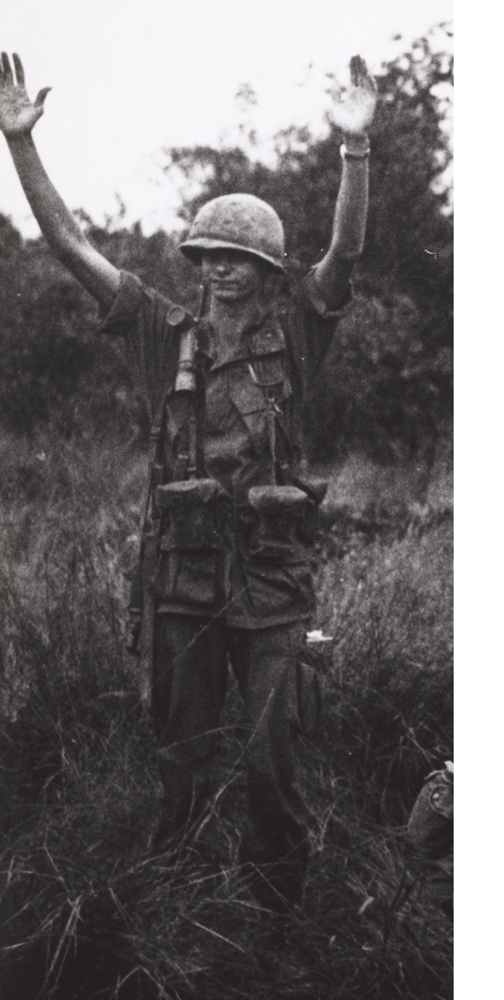
Old Enough to Vote
The last in a series of amendments expanding voting rights, the Twenty-sixth Amendment provided that “the right of citizens of the United States, who are eighteen years of age or older, to vote shall not be denied or abridged by the United States or by any State on account of age.” States ratified the amendment on July 1, 1971, in just 100 days, faster than any other amendment to the Constitution. Although not part of the thirty-eight states needed for ratification, Virginia subsequently ratified the amendment a week later.
“Old enough to fight, old enough to vote,” a slogan first used during World War II, became the rallying cry of student activists during the Vietnam War. To many, it seemed unfair that eighteen-year-olds were old enough to get married, work, pay taxes, and serve in the armed forces, yet they could not vote or have a voice in their government. Upon ratification, 11 million potential voters were added to the electorate. Half of these young people cast their ballot in the 1972 presidential election.
Native Born but Not a Citizen
When women gained the ability to vote in 1920, most Native Americans were not considered citizens of the United States and could not vote. In 1884, the U.S. Supreme Court ruled in Elk v. Wilkins that the Fourteenth Amendment, which gives citizenship to anyone born in the United States, did not apply to indigenous Americans.
Intimidation
The U.S. Congress granted Native Americans citizenship with the Indian Citizenship Act of 1924. Nevertheless, barriers remained. State legislatures enacted laws to limit or disenfranchise indigenous American voters. Intimidation tactics included requiring that Indians terminate their relationship with their tribe, excluding members living on reservations, and imposing literacy tests.
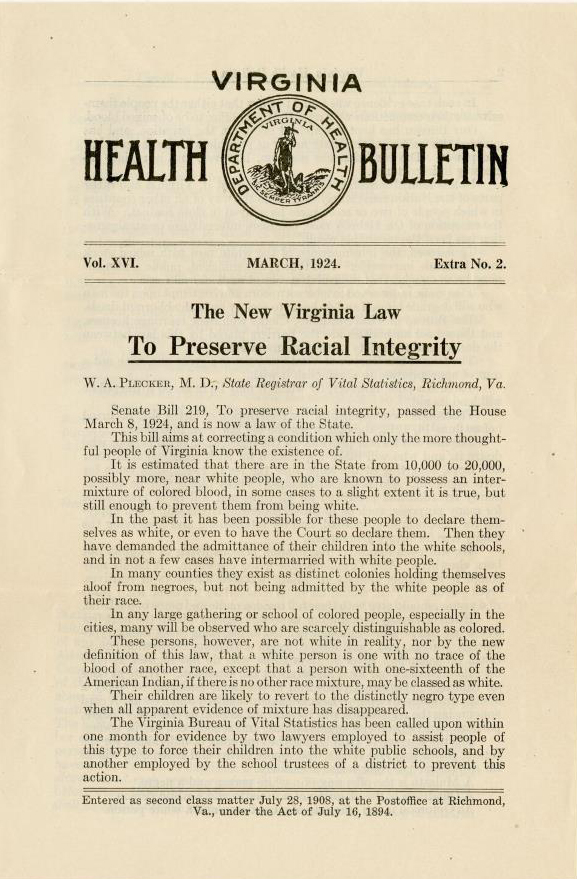
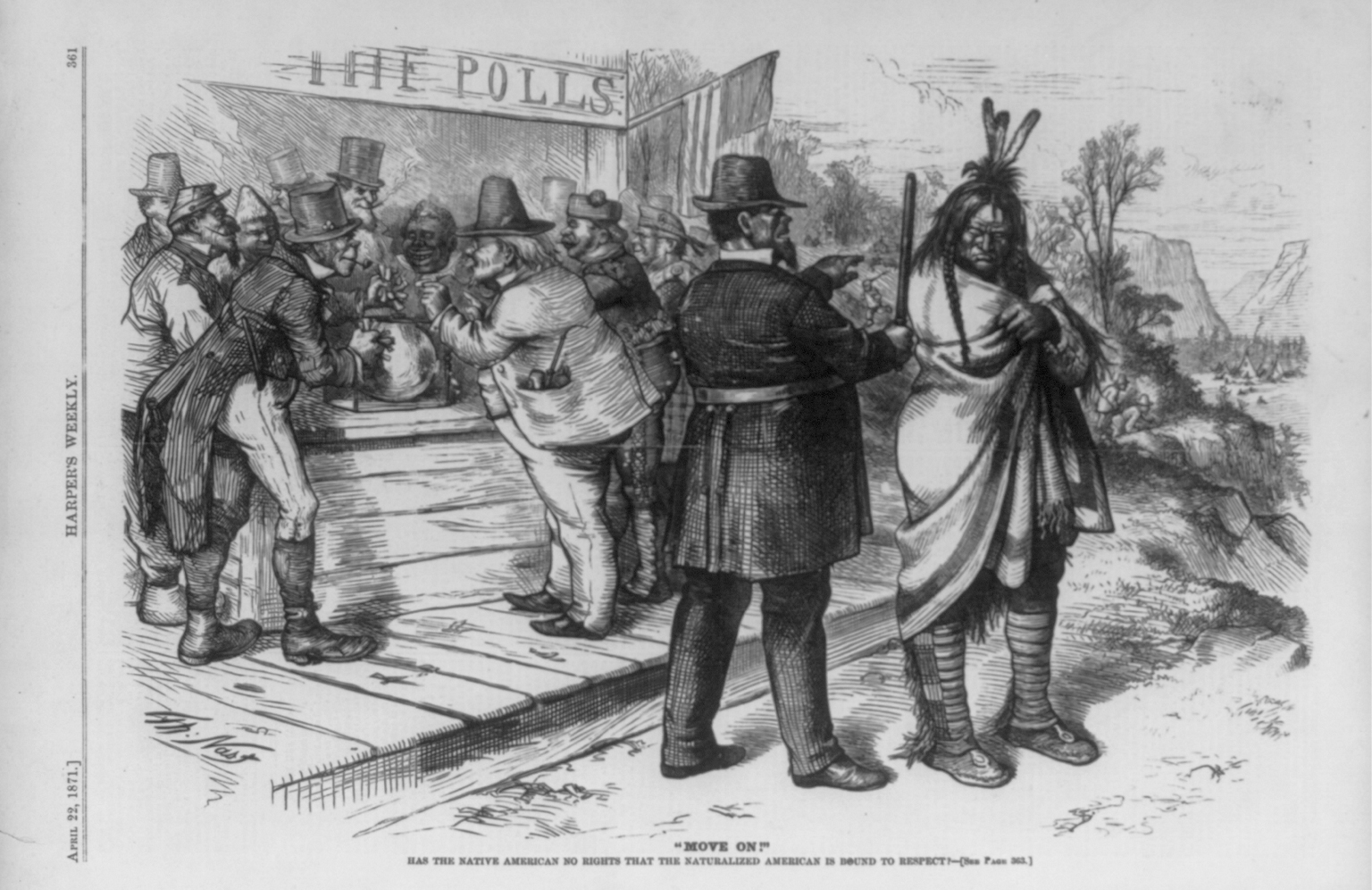
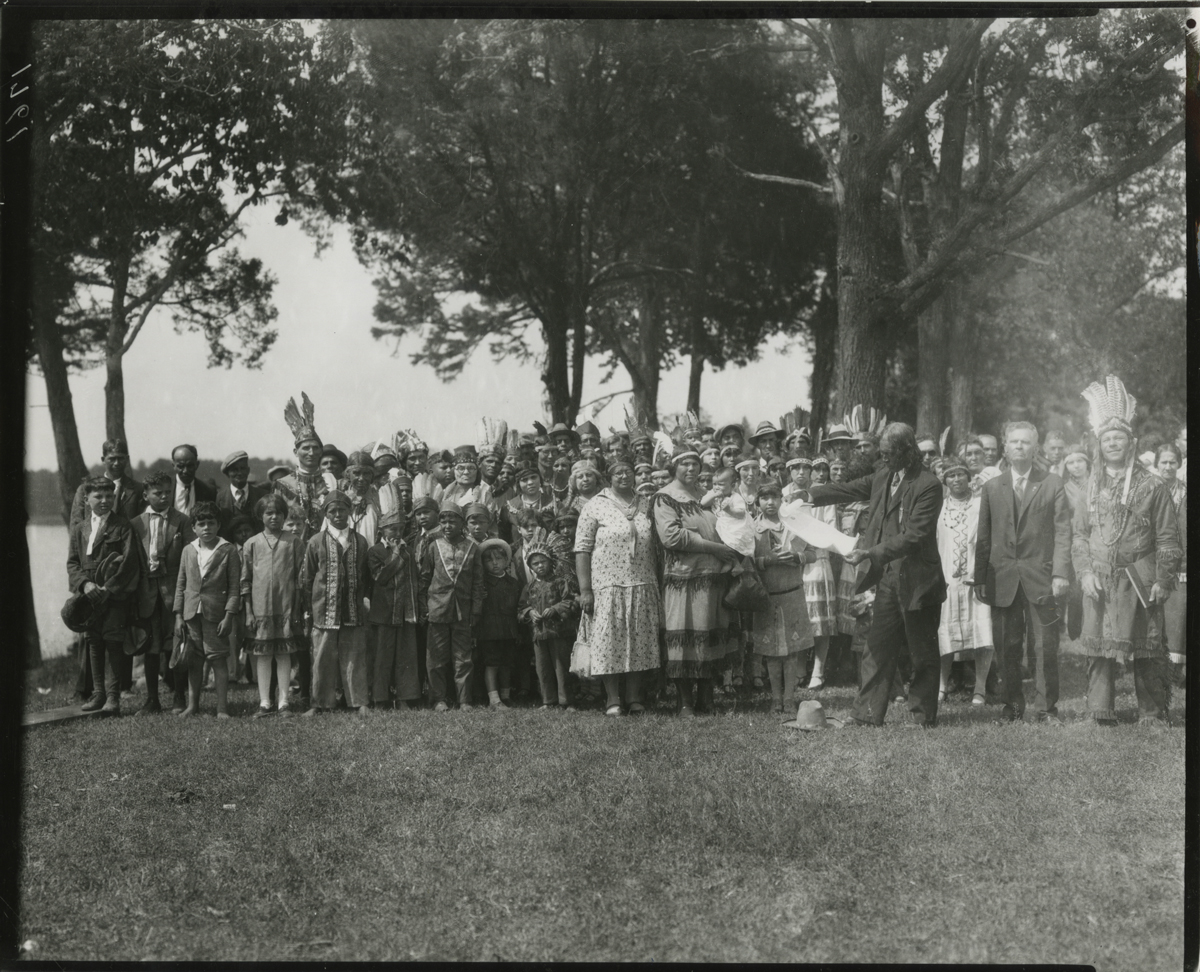
Racial Integrity
In Virginia, the Racial Integrity Act of 1924 complicated the status of indigenous Virginians by classifying all citizens as either white or “colored.” Walter A. Plecker, registrar for the Bureau of Vital Statistics, flatly denied that any true Native Americans lived in Virginia because they had intermarried with African Americans over the years. In Plecker’s mind, there were only white Virginians and black Virginians. The Racial Integrity Act was not overturned until the 1967 U.S. Supreme Court ruling in Loving v. Virginia.
Today’s Tribes
Virginia’s native peoples struggled for years to receive state and federal recognition. Today, the Commonwealth of Virginia recognizes eleven tribes: Cheroenhaka (Nottoway), Chickahominy, Eastern Chickahominy, Mattaponi, Monacan Nation, Nansemond, Nottoway of Virginia, Pamunkey, Patawomeck, Rappahannock, and Upper Mattaponi. Seven tribes have received federal recognition: Chickahominy, Eastern Chickahominy, Monacan, Nansemond, Pamunkey, Rappahannock, and Upper Mattaponi.
Equal Rights Amendment
1923…
The Equal Rights Amendment was originally proposed in 1923 to guarantee that “Equality of rights under the law shall not be denied or abridged by the United States or by any State on account of sex”.
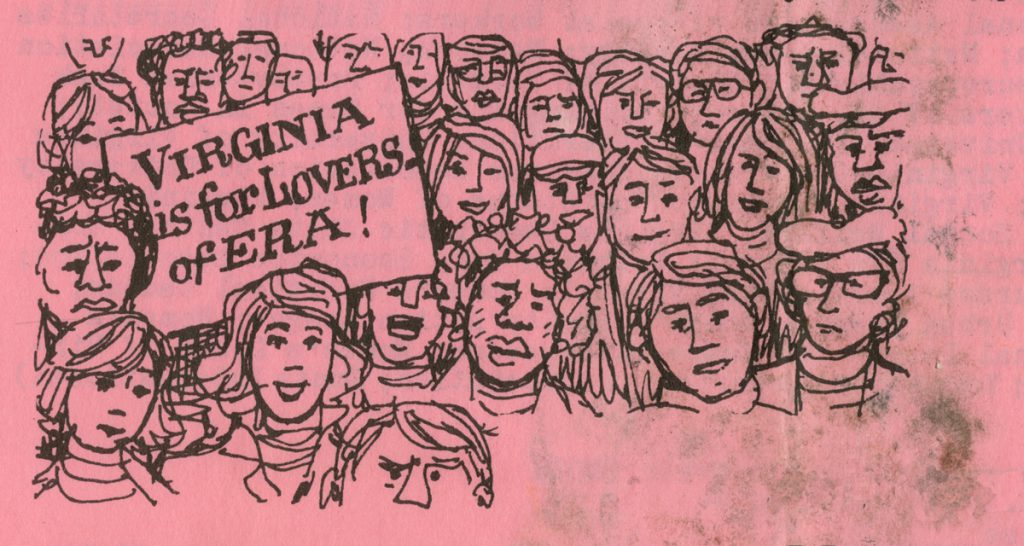
…to 1972…
In 1972, the U.S. Congress finally passed the ERA and sent the amendment to state legislatures for ratification. Groups like the League of Women Voters of Virginia and the National Organization for Women supported passage. The Virginia Equal Rights Amendment Ratification Council formed in 1974 to advocate ratification. The ERA faced stiff resistance, however. Opponents considered the ERA unnecessary and often used the same language that had been employed to argue against the Nineteenth Amendment and woman suffrage. The ERA, they claimed, threatened traditional values and laws that protected women and children. They argued that ratification of the ERA would allow women to be drafted, create unisex bathrooms, loosen abortion restrictions, and abolish gendered organizations.
…to 2020
Congress originally set a deadline of 1982 for thirty-eight state legislatures to ratify the amendment. By 1977, thirty-five states had approved the amendment; Virginia was not among them. Congress later extended the deadline indefinitely. Experts disagree on what it would mean if the amendment achieved the necessary state support. On January 28, 2020, the Virginia General Assembly became the required thirty-eighth state to ratify the ERA.
African Americans, Suffrage, and the Right to Vote
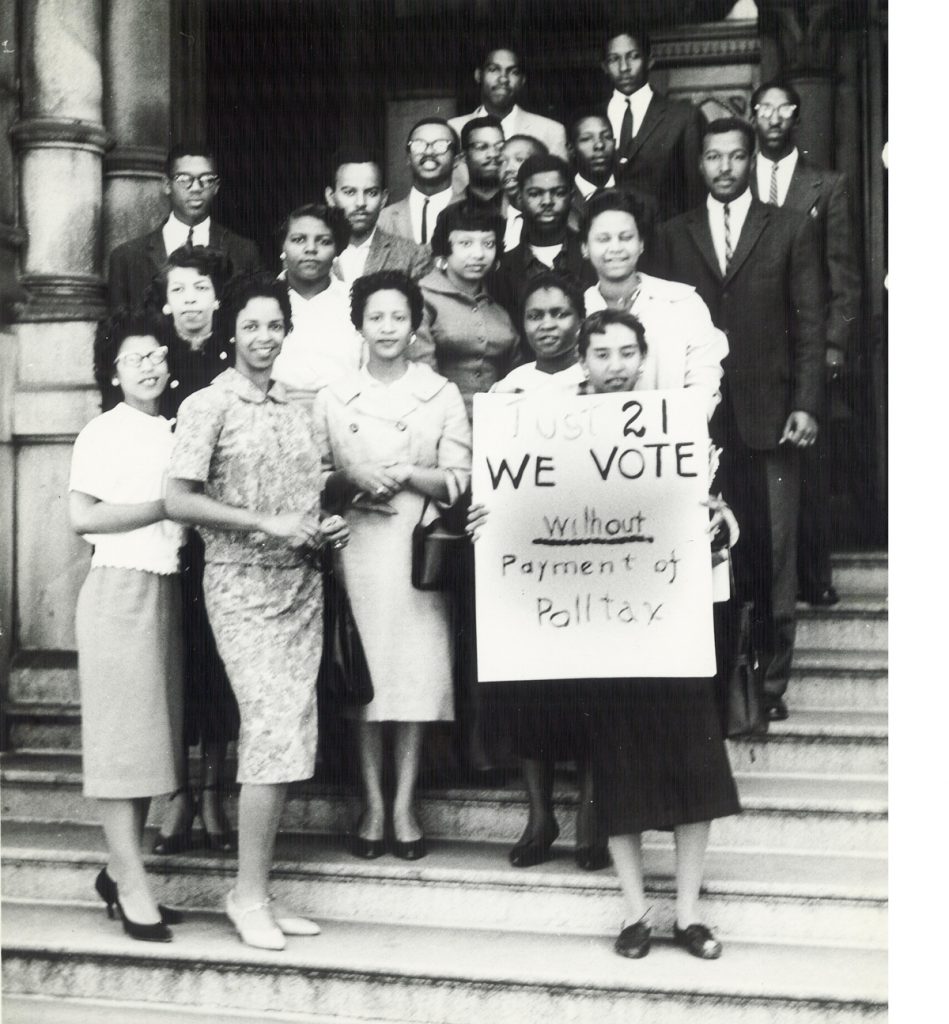
Disenfranchised
Securing the right of African Americans to vote required federal amendments, federal legislation, and U.S. Supreme Court rulings. The Fifteenth Amendment, ratified in 1868, stated that voting could not be restricted “on account of race, color, or previous condition of servitude.” Many white suffragists resented the fact that African American men were able to vote while women were not. The 1902 Virginia Constitution restricted black votes through tactics such as “white primaries,” grandfather clauses, restrictions based on criminal records, and poll taxes. Those restrictions remained after ratification of the Nineteenth Amendment.
- White primary: a party primary in a southern state open to white voters only
- Grandfather clause: a clause creating an exemption based on circumstances previously existing, such as a provision in several southern state constitutions designed to enfranchise poor white citizens and disenfranchise African Americans by waiving strict voting requirements for descendants of men voting before 1867
- Poll tax: a tax of a fixed amount per person levied on adults and often linked to the right to vote
The Twenty-fourth Amendment, ratified in 1964, eliminated poll taxes for federal elections. Not until 1966 did the U.S. Supreme Court rule, in Harper vs. Virginia Board of Elections, that any poll tax was unconstitutional. Virginians Annie E. Harper and Evelyn Thomas Butts were the primary litigants. The Voting Rights Act of 1965 outlawed literacy tests and other restrictions.
In 2013, the U.S. Supreme Court decision in Shelby County v. Holder nullified a part of the Voting Rights Act that required southern states to get federal approval before making changes to their voting laws. This has made it easier for states to introduce new regulations such as voter identification laws that have made voting more difficult for some citizens.
Barriers to Access
Even if all citizens have the right to register to vote, barriers remain that prevent equal access to both registration and the practice of voting. The voter registration process still suffers from a lack of accessible locations, insufficient internet access, and restrictions on registration hours. Absentee, early, mail-in, and in-person voting opportunities remain unequal, while inadequate translation services and voter identification laws continue to present barriers.
Gerrymander: to manipulate the boundaries of (an electoral constituency) so as to favor one party or class
Virginians are represented by two senators and eleven representatives in the U.S. Congress and statewide by one hundred state delegates and forty state senators. The federal government requires that district boundaries divide the population into relatively equal segments that do not discriminate based on race or ethnicity. Every ten years, the districts are redrawn by the Virginia General Assembly based on census data.
Districts that are engineered to favor a specific political party, or to minimize or exclude a population based on race or ethnicity, are considered gerrymandered. The U.S. Supreme Court has found that Virginia’s districts are racially gerrymandered and, therefore, must now be redrawn without bias.
Hours and Locations
Polling locations in Virginia are open from 6:00 AM until 7:00 PM. Many people have to work or provide childcare or eldercare during this time. Election Day is not a federal holiday, although in Virginia it became a state holiday in 2020. Some citizens may not be able to both vote and fulfill their work duties, especially those who hold multiple jobs. In large rural districts, voters may have difficultly traveling to or from remote polling locations. Even urban or suburban voters are limited by transportation to the polls.
Criminal Justice and Restoration of Rights
Virginia is one of four states that does not automatically restore a convicted felon’s civil rights at the completion of incarceration and/or supervision. In Virginia, any person convicted of a felony loses the right to vote, serve on a jury, run for public office, and other civil rights. The governor has sole discretion to restore civil rights and only on a case-by-case basis.
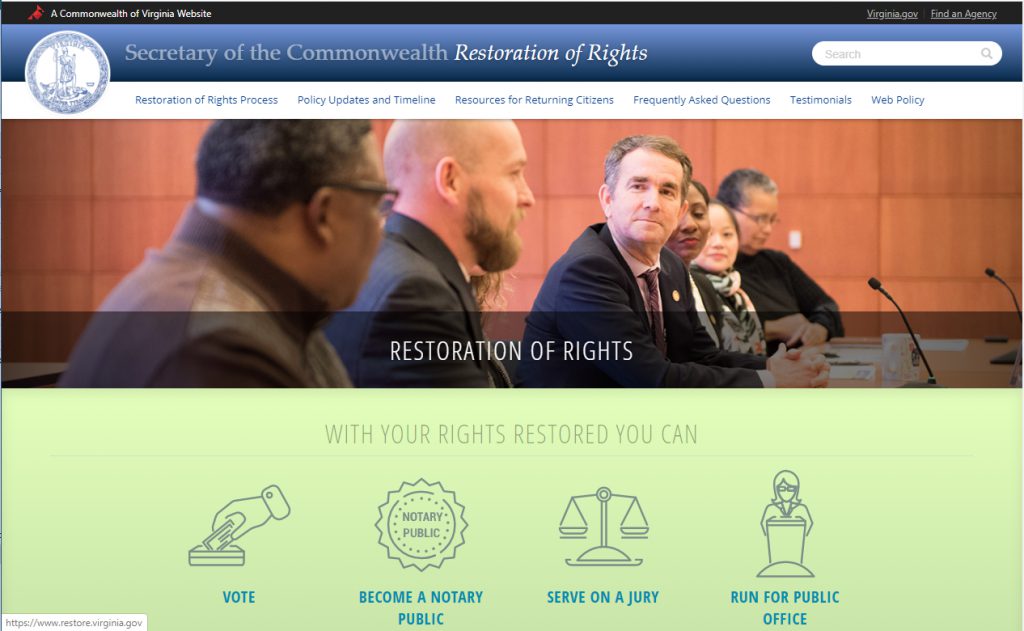
Governor Bob McDonnell restored rights to a larger number of nonviolent felons (8,013) than any of his predecessors. In 2013, he unsuccessfully sought legislation to allow for automatic restoration of rights for nonviolent felons. On April 22, 2016, Governor Terry McAuliffe signed an executive order that restored voting rights to more than 200,000 convicted felons in Virginia. The Supreme Court of Virginia ruled that the order violated the Constitution of Virginia because the governor did not have the authority to grant blanket pardons and restoration of rights. In response, McAuliffe restored voting rights to almost 13,000 felons individually, using an autopen, a signature machine. By the end of his term, McAuliffe had restored voting rights to more felons than any other governor in U.S. history.
In 2017, the Virginia Senate passed a constitutional amendment (Joint Resolution 223) to restore rights automatically to those convicted of nonviolent felonies who have completed their sentences and paid all fines. The amendment died in the Virginia House of Delegates Committee on Privileges and Elections.
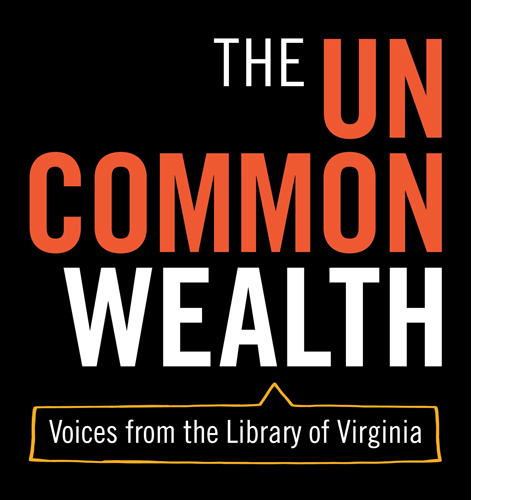
Learn More About America’s Unfinished Business Around Voting in these UncommonWealth Blog Posts
- We Demand Complete Realization: The Slow Legal Fight For Enfranchisement
- “On Account Of Race”: Disenfranchisement Of Black Voters In Virginia
- Unfinished Business: Barriers To Voting
- Indigenous Voters in Virginia
- How Young Is Too Young To Vote?
- The Fate of the Equal Rights Amendment
- Disenfranchisement of People Currently or Formerly Incarcerated in Virginia
Campaigning for the Vote Continues
Virginians continued fighting for equal access to the right to vote throughout the 20th and 21st centuries. Learn more about some of them by clicking on the links below.
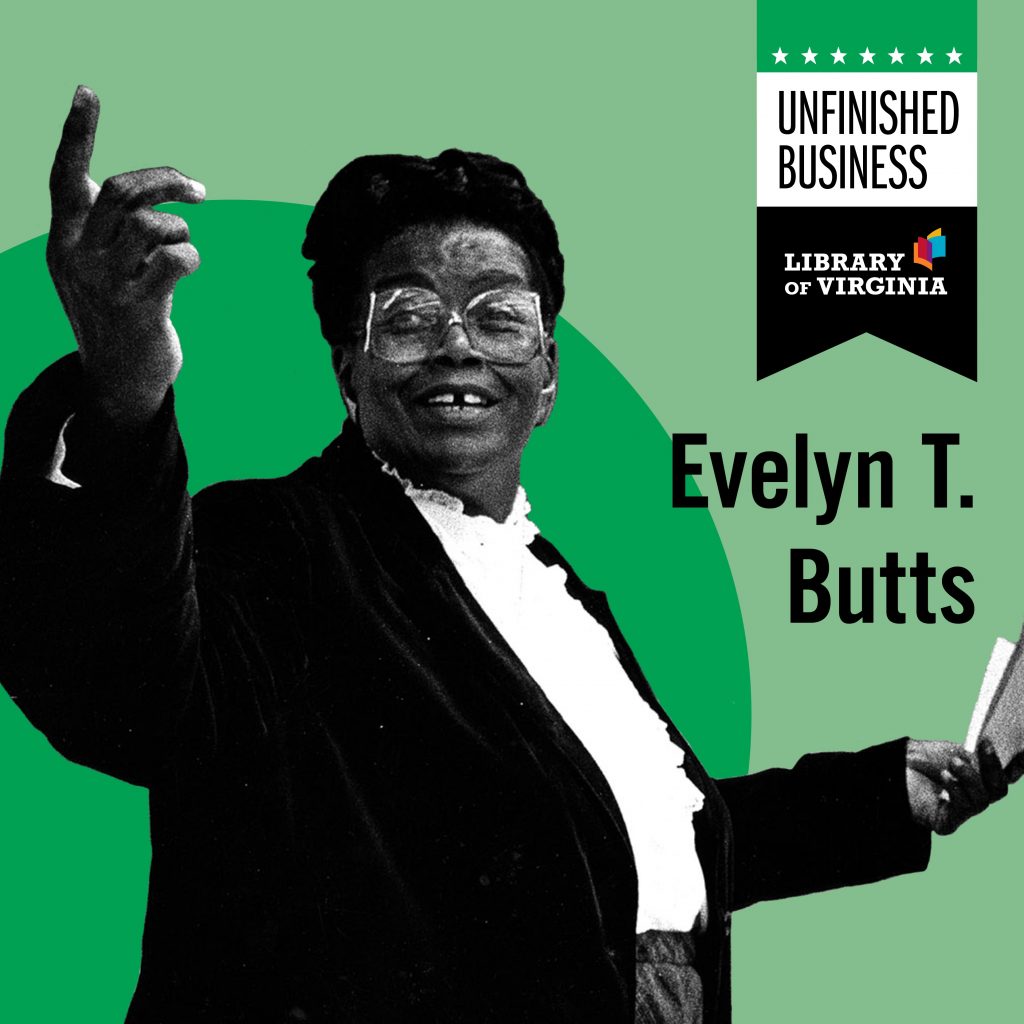
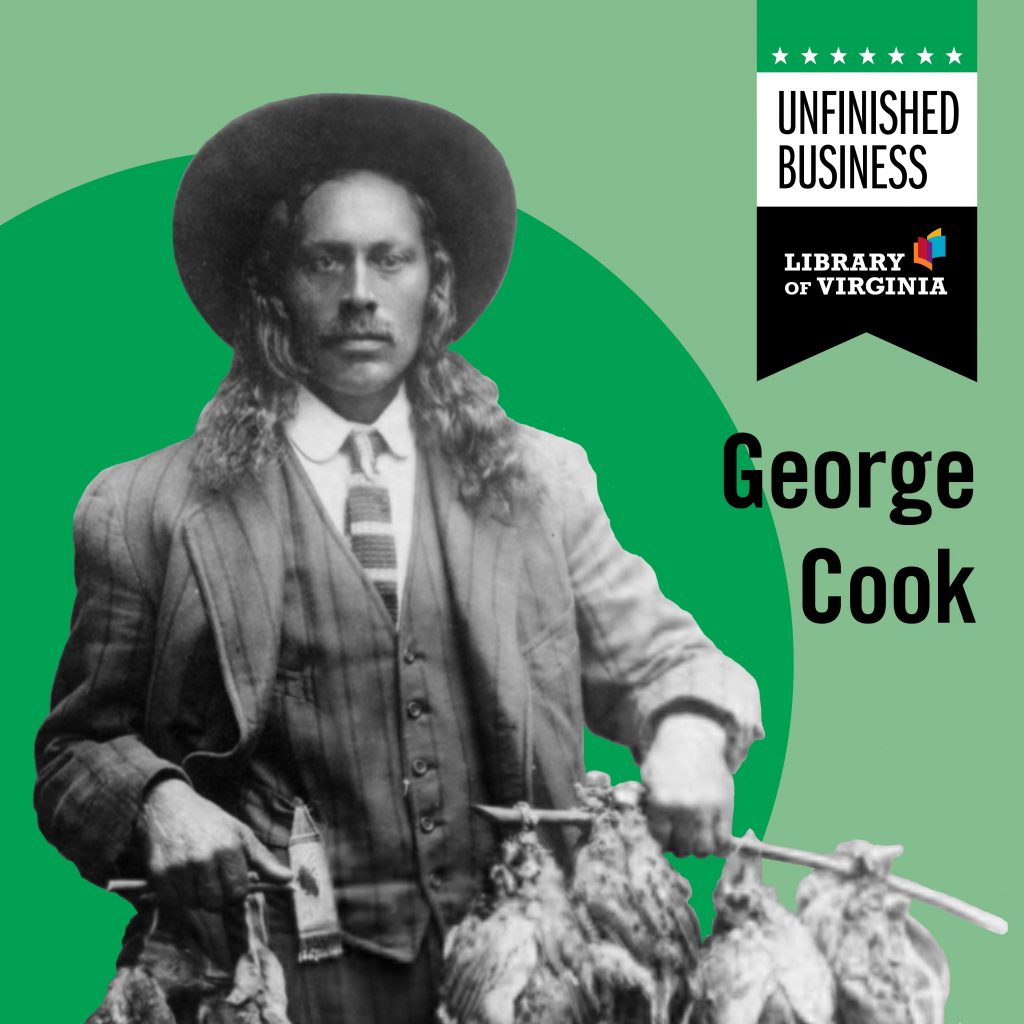
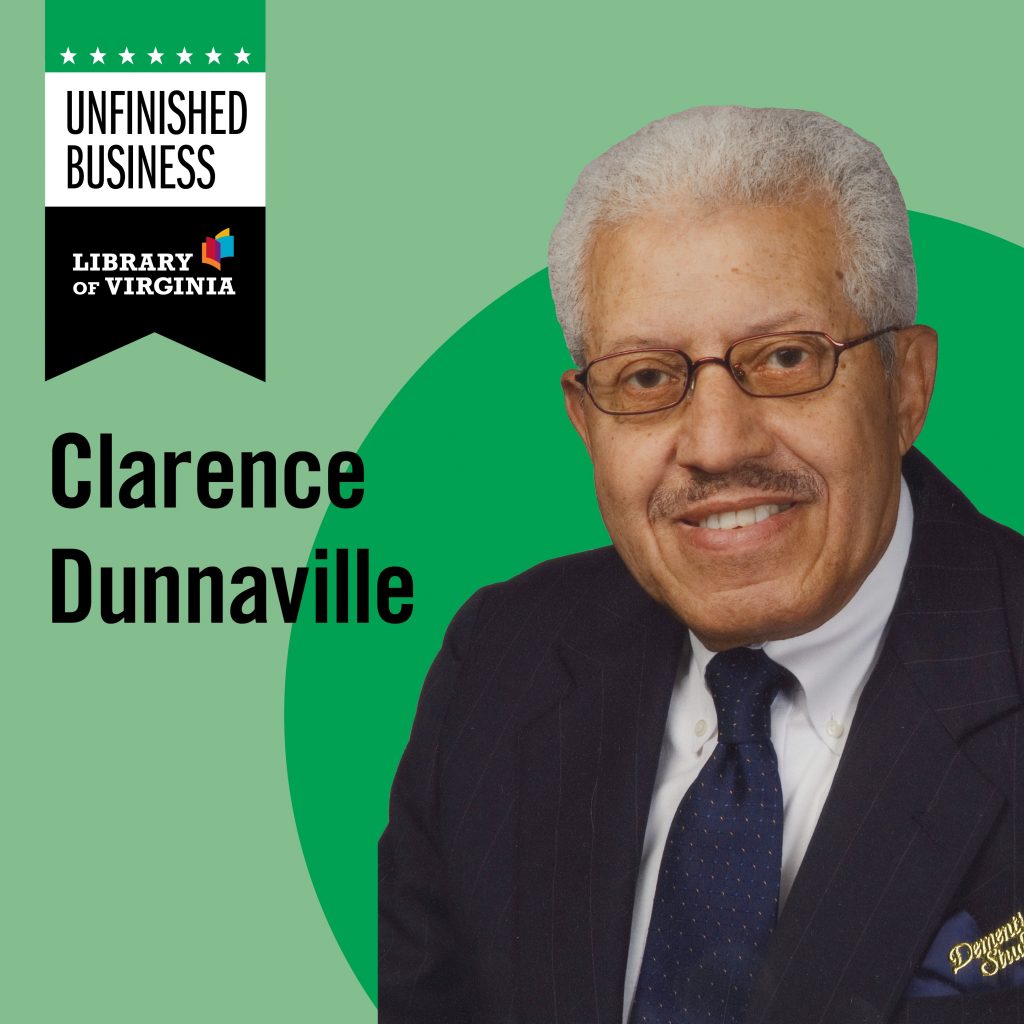
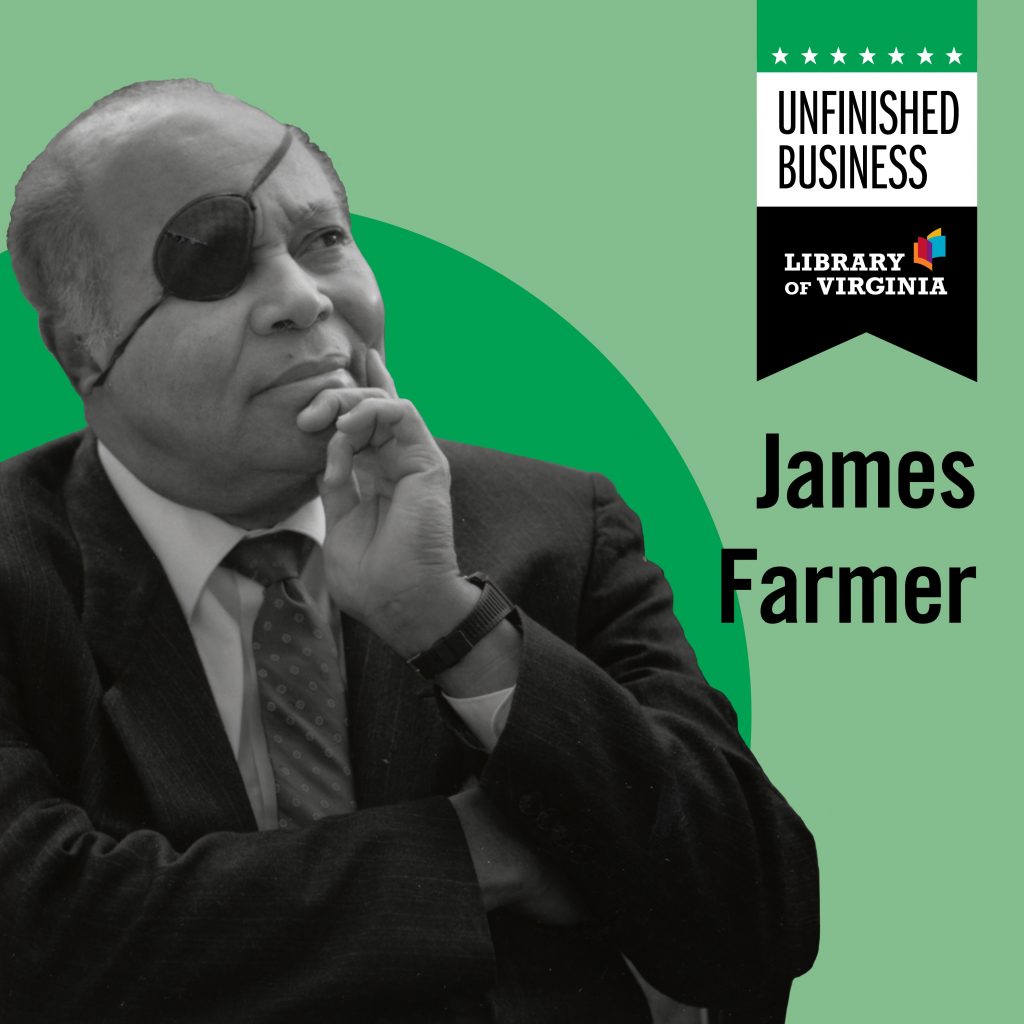
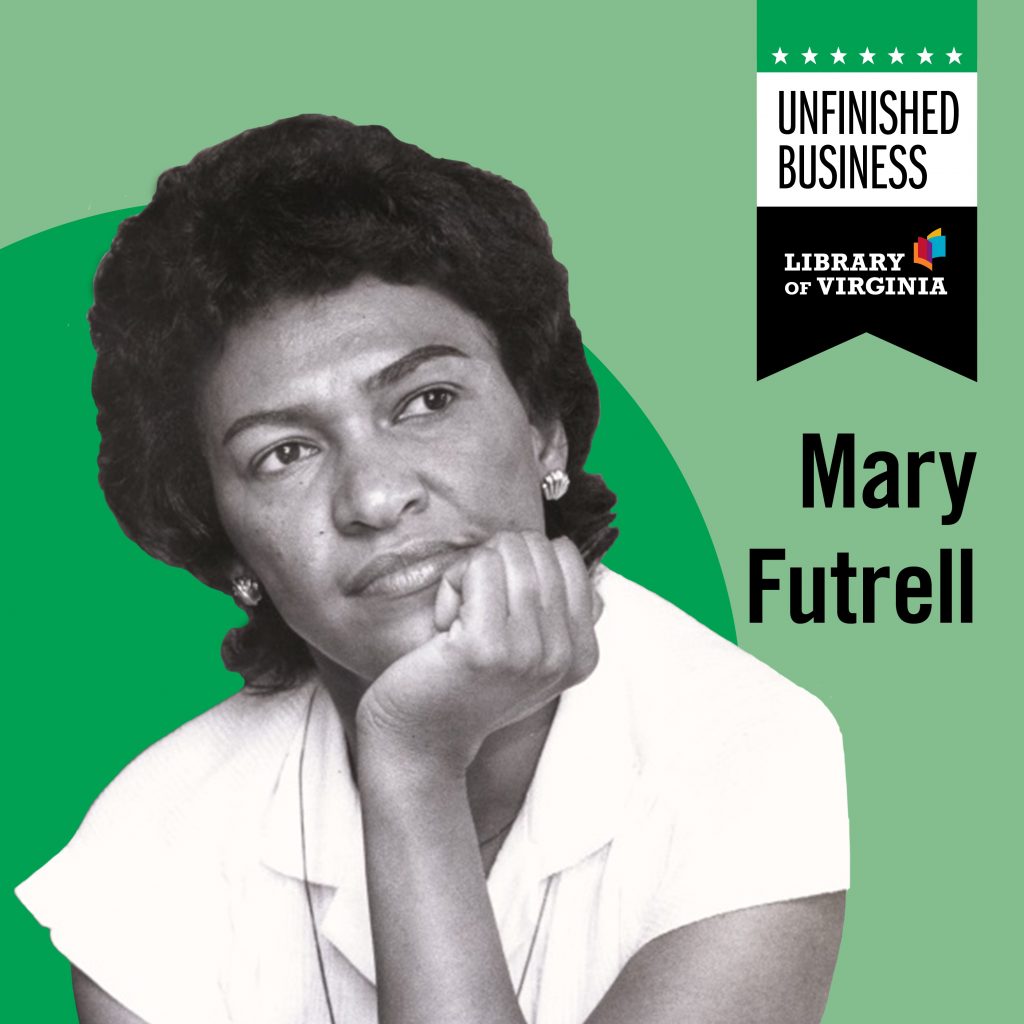
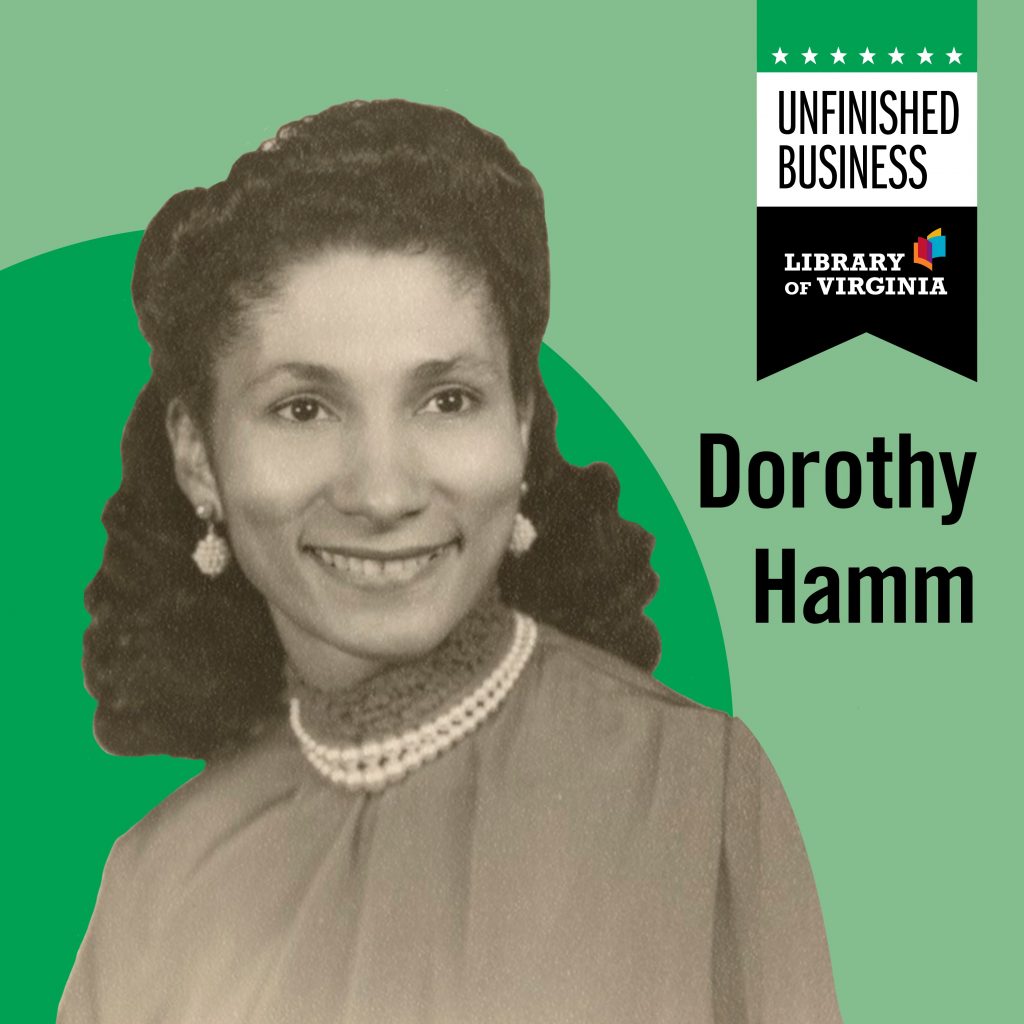
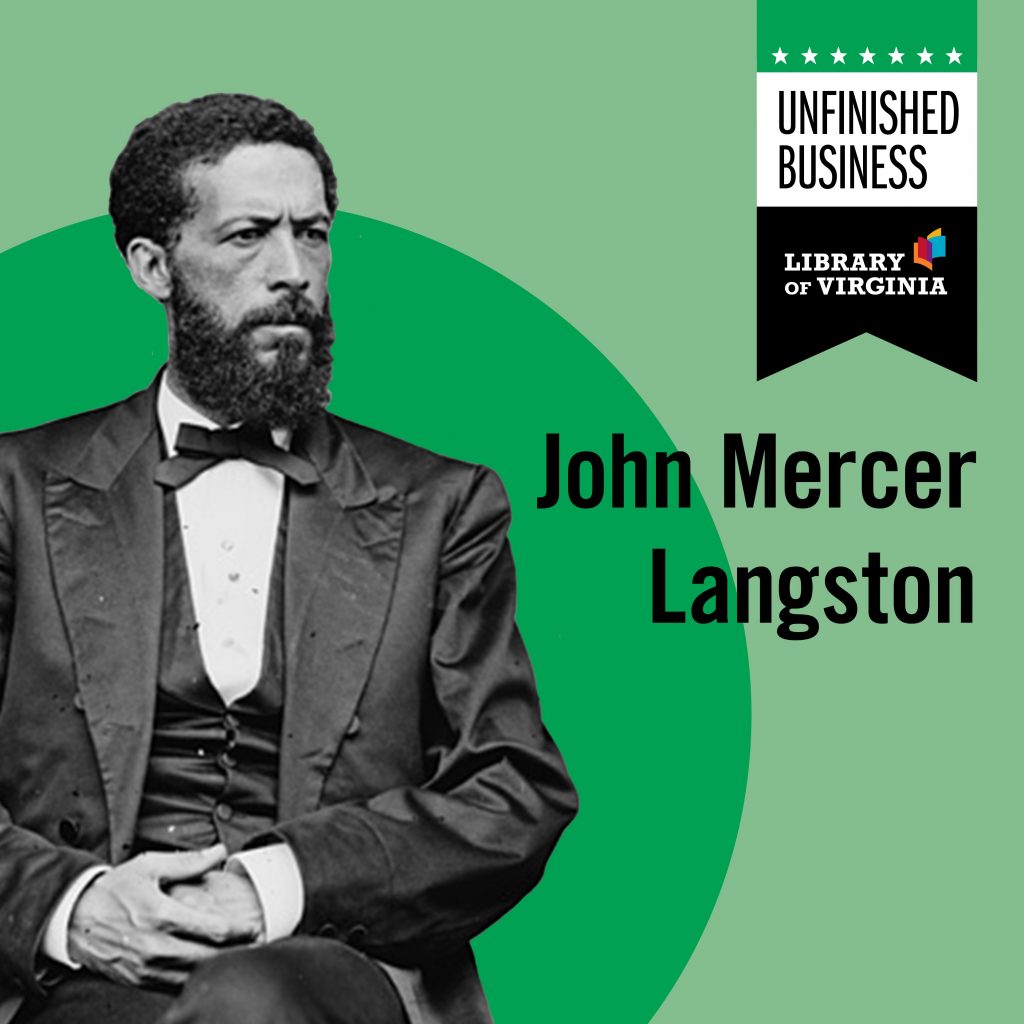
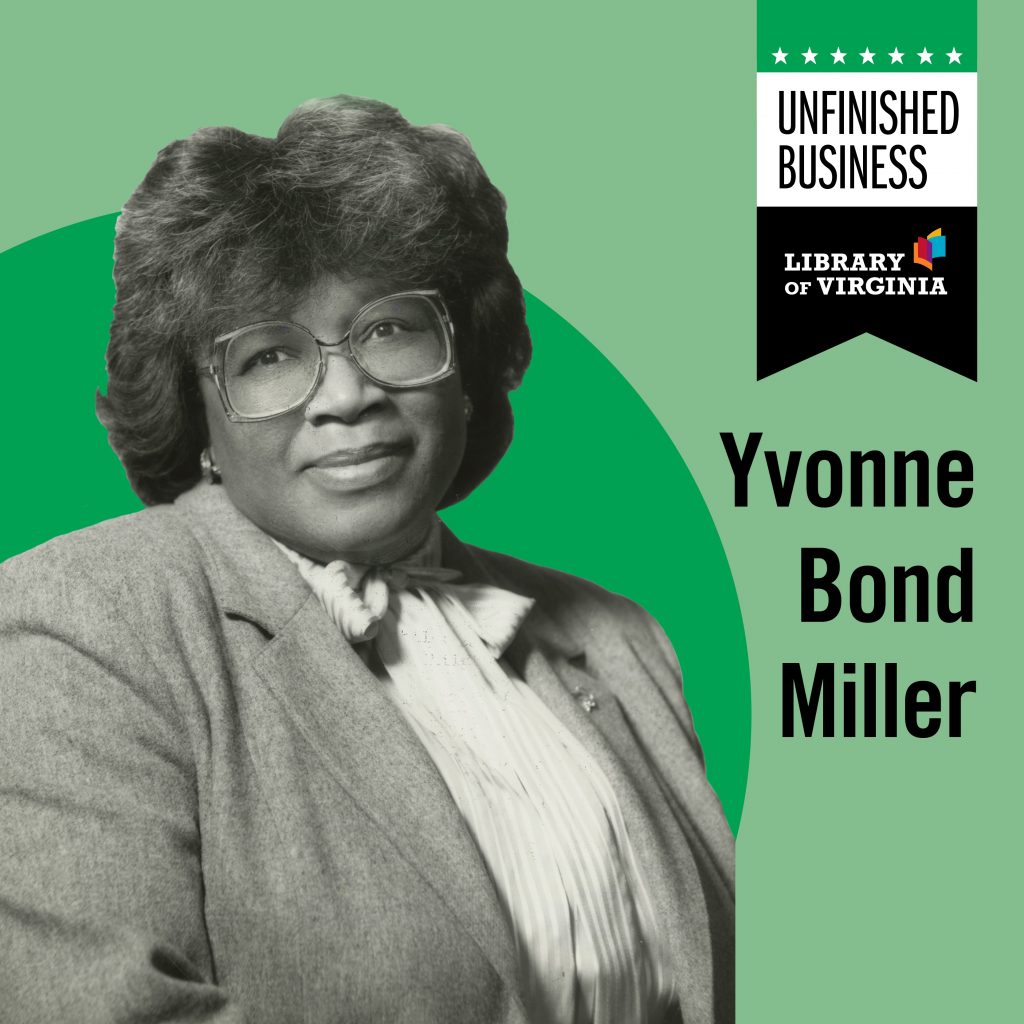
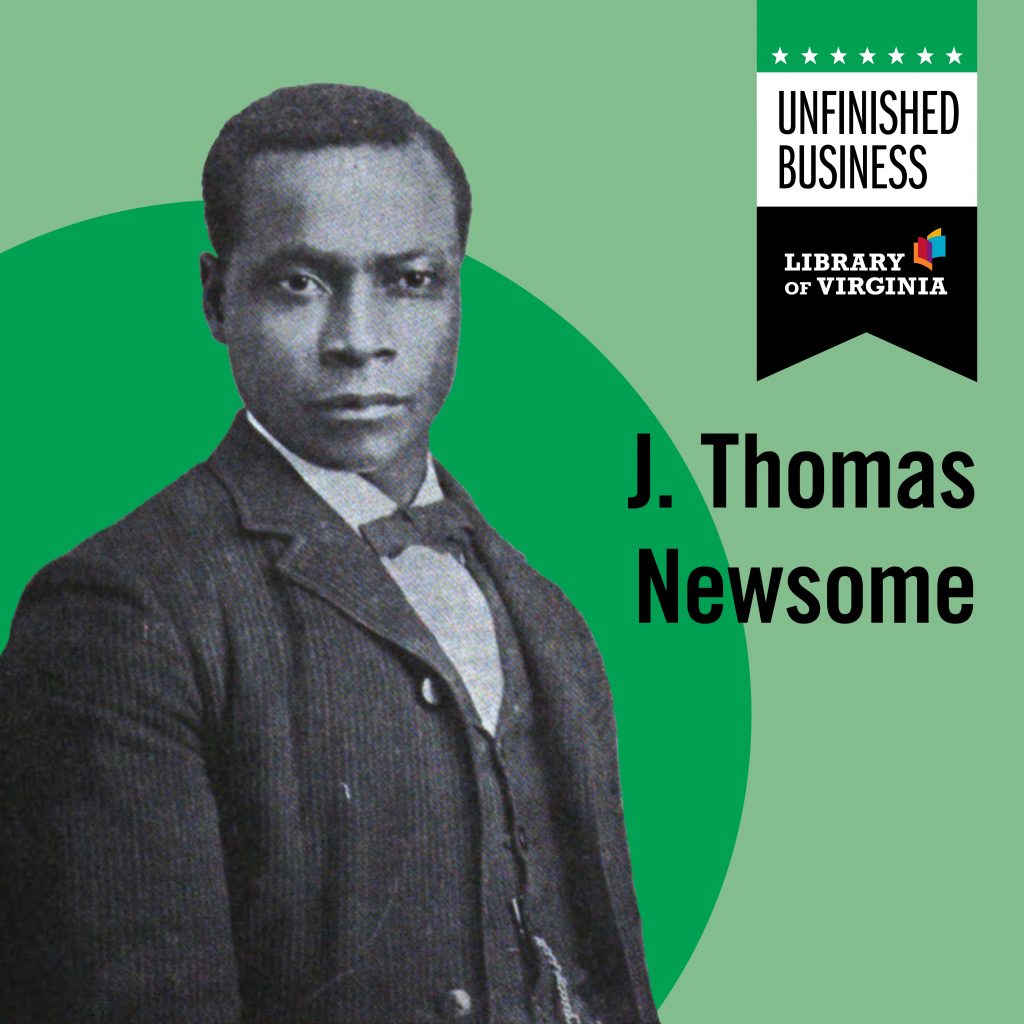
Things to Consider
- Do you think the voting age should go lower and allow 16 year olds to vote?
- Do you believe the ERA can be a tool to prevent gender discrimination?
- Are the districts fair as they are currently drawn in Virginia?
- Do you feel everyone who is eligible to vote is easily able to exercise this right?
Resources Beyond the Library
- Voting Rights: A Short History – a website hosted by Carnegie Corporation of New York
